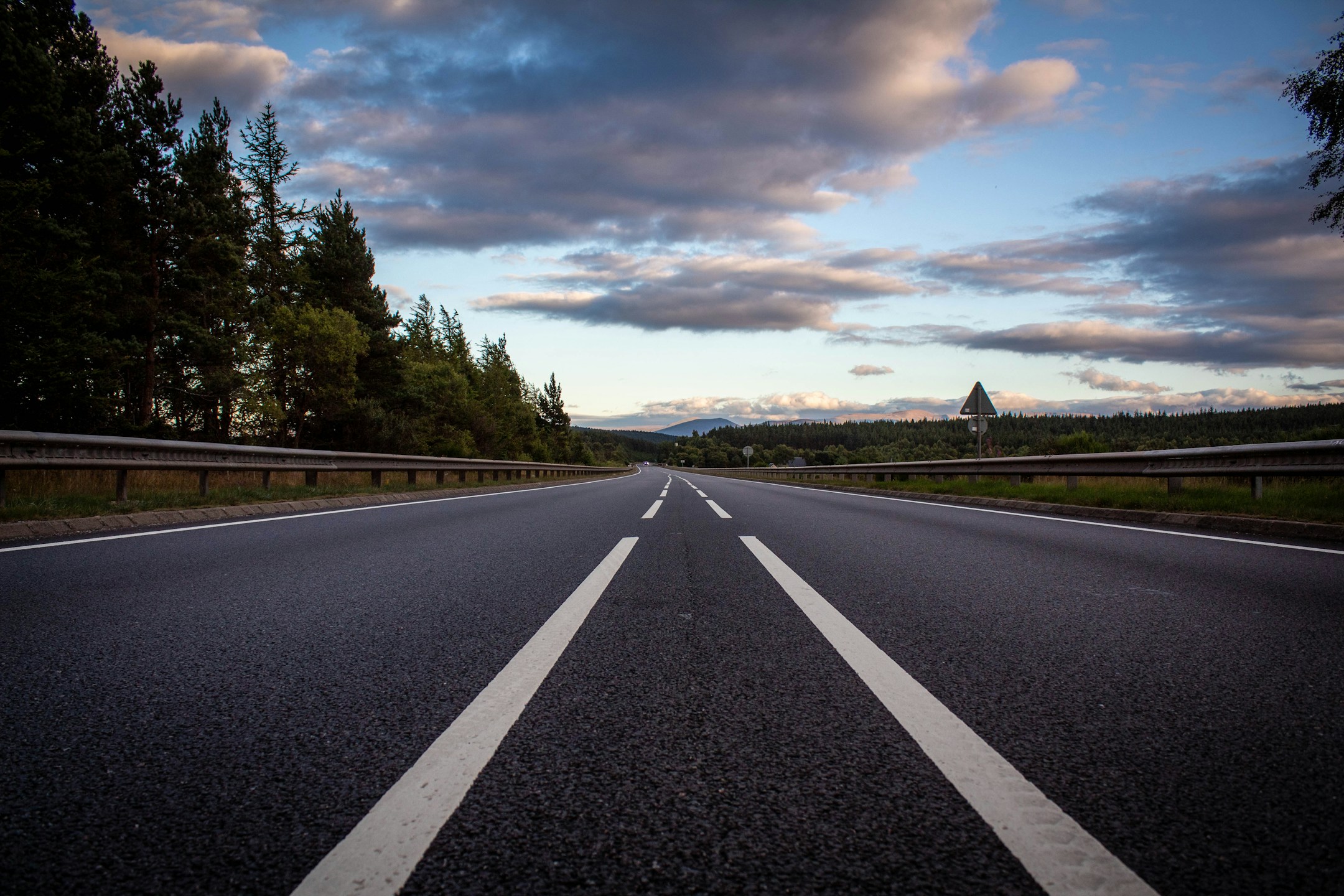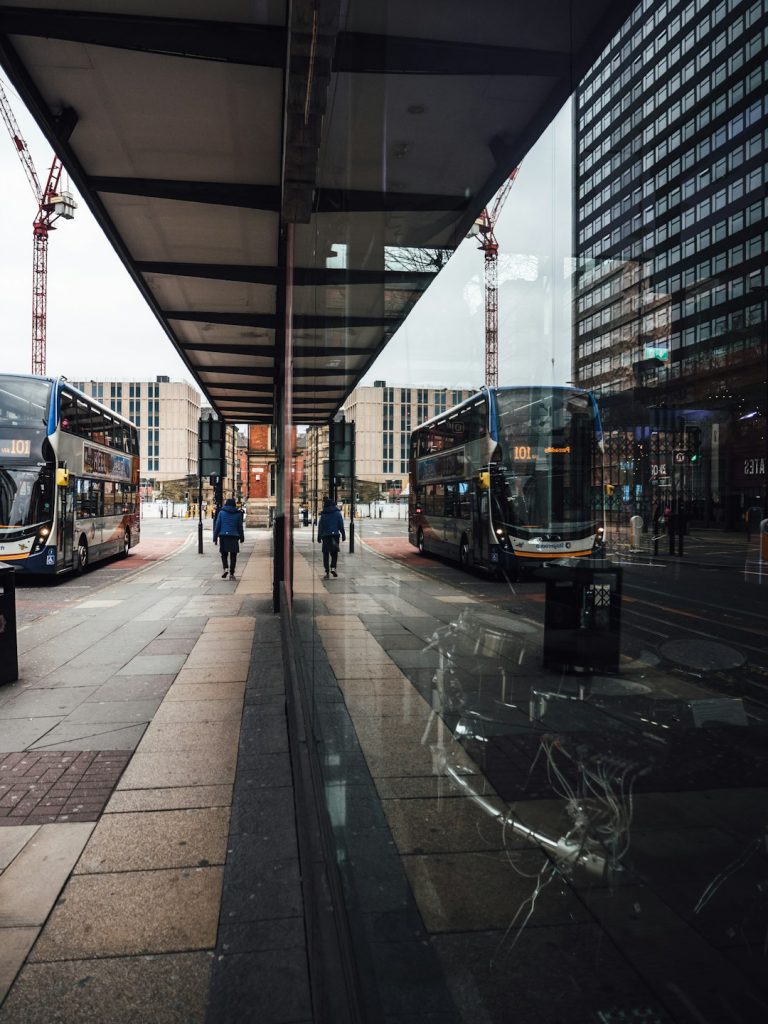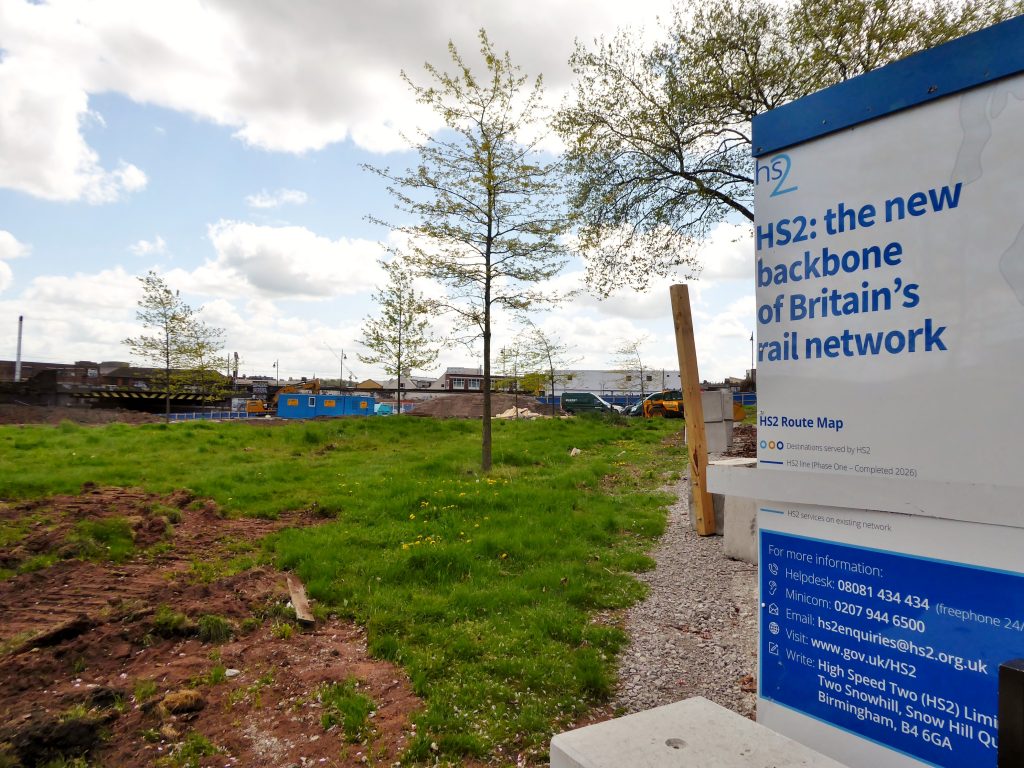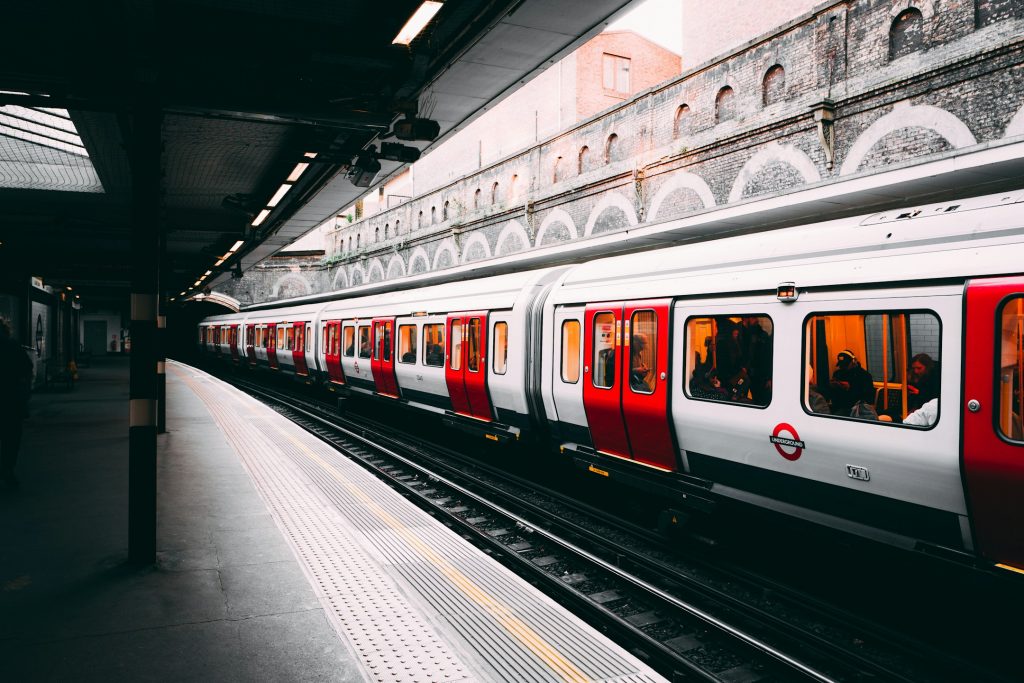Vision:
Road transport
- Last update: 11/03/2024
- Version: v1.1
We believe the road network needs to be shared fairly between private cars, goods, buses, cyclists and pedestrians.
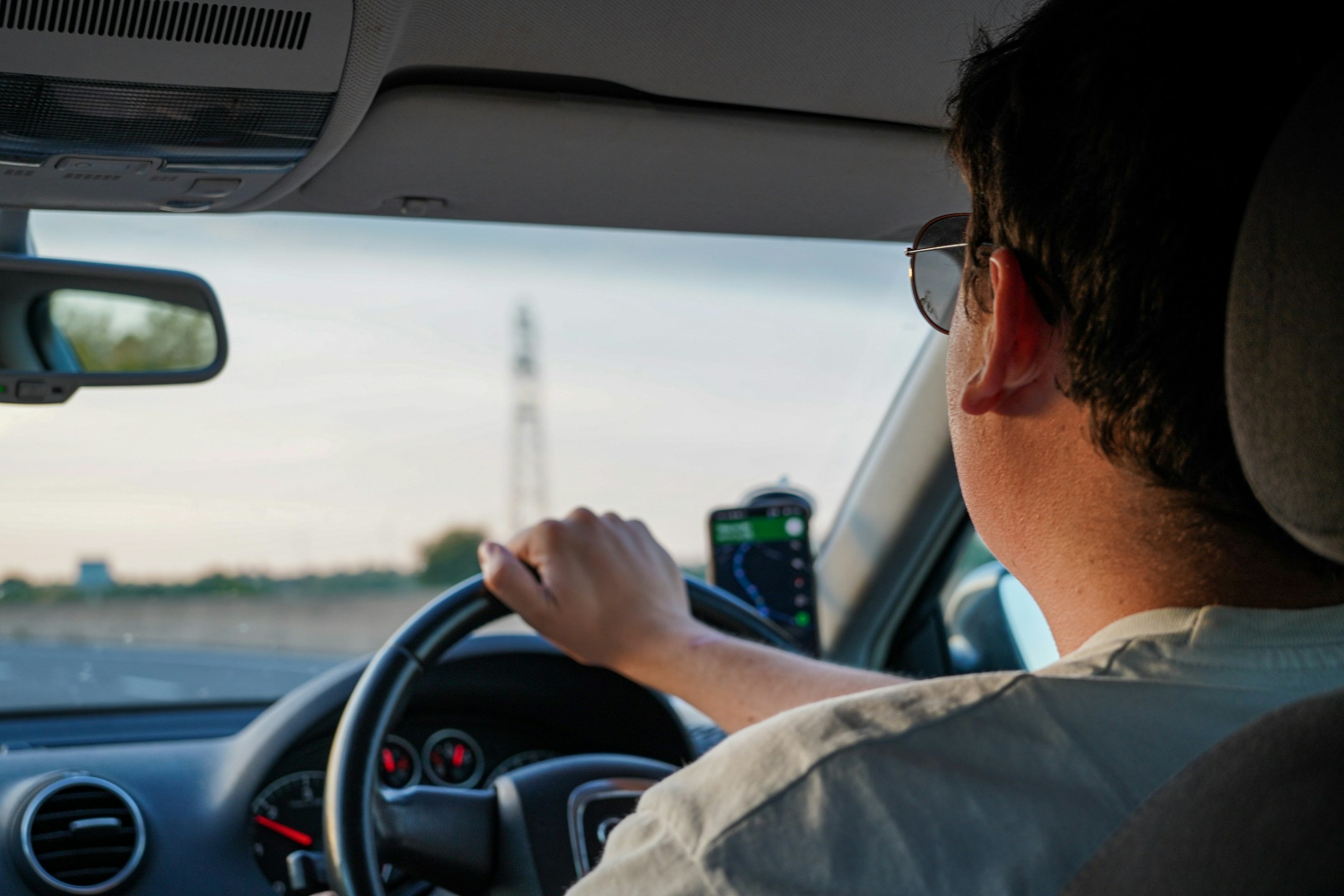
At Enroute, we strive to create a greener, economically-friendly, and community-influenced public and active transport network, encouraging modal shift from road and private car to sustainable modes of transport. We elaborate on our aims with our comprehensive vision for the transport network in 2050.
Our 2050 Vision draws on our work and the published work of other organisations. Whilst we highlight where our vision aligns with the views of other organisations, the 2050 Vision represents Enroute’s views and should not be taken to represent those of other organisations.
Electric Vehicles (EVs)
Enroute focuses on promoting public transport and active travel, and as such the transition from internal combustion engine (ICE) to electric vehicles (EVs) is not in the scope of most of our work. Nevertheless, we both recognise the essential role of EVs in transitioning to a sustainable transport system, and limitations and issues of EVs, including the environmental impacts of resource extraction and manufacturing, the impact of increasing vehicle weight on infrastructure, and pollution from brakes and tyres.
We recognise that EV technology is constantly evolving in efficiency and sustainability, and that the shift of some journeys from ICE vehicles to public and active transport will be accompanied by a shift of other ICE journeys to EVs.
Our vision for the future of electric vehicles, which aligns with recommendations from the International Energy Agency, includes:
- Maintain and adapt support for electric cars, including through retaining subsidy and ‘feebate’ programmes in the short- to medium-term to encourage shift from classic equivalents, but eventually phasing these out at the market matures and prices become more competitive.
- Kickstart the heavy-duty market, leading from a Government level to help kickstart sales of electric buses and trucks. In the UK, electric buses have become popular in hyper-urban settings, most notably in London, Birmingham and Coventry, however, further rollout is required.
- Expand EV infrastructure, especially in rural areas across Great Britain such as in national parks and smaller towns and villages. It’s vital that Governments support this deployment until there are enough EVs on the road for an operator to sustain a network economically.
We are supportive of further research and development of overhead infrastructure primarily for use by hybrid Heavy Goods Vehicles (HGVs) on UK motorways, as is being considered in Germany at present.
We support the 2030 target to ban the sale of diesel and petrol cars in Great Britain. We also support a 2050 ban of diesel and petrol cars in Great Britain on the public road network, supported by continuous Government subsidy and an interest-free loan scheme for those that still own these cars and use them on the road network post-2030. This subsidy scheme would gradually be wound down up until 2045, 5 years before the ban would come into place.
Car clubs and shared vehicle ownership models
Enroute strongly supports the development and expansion of car clubs and shared vehicle ownership models, particularly those incorporating electric vehicles. We believe these initiatives play an important role in our vision, as increasing utilisation of these schemes will reduce the need for single-car usage and therefore reduce overall vehicle emissions. Reducing the need for car ownership will also help save space in cities, reducing demand for parking.
We advocate for policies that encourage the growth of car clubs, especially in areas where public transport may not fully meet all transport needs. Enroute recommends that local and national governments consider incentives for car club memberships, dedicated parking spaces for shared vehicles and integration of car club services with other public transport options through shared mobility hubs.
New and ongoing road projects
We believe that the decision in Wales to scrap all major road building projects in February 2023 was a very sensible move. As part of the Welsh Government’s National Transport Plan, any future roads must ‘pass strict criteria which means they must not increase carbon emissions’. We believe this stance should be taken across England and Scotland in addition to Wales, showing a world-leading approach to the climate crisis from a transport point-of-view.
More roads and larger roads (including additional lanes) encourage more traffic, increasing air, noise and water pollution, making it harder to tackle climate change. We therefore oppose road enhancement projects and road building projects, that aren’t designed to maintain the existing network. We do not support smart motorways and believe that they should be reversed on safety grounds.
Decarbonisation of vehicles in Great Britain, and SUVs
We support Low Emission Zones, including:
- Brand new Low Emission Zones (LEZ), Ultra Low Emission Zones (ULEZ) and Zero Emission Zones (ZEZ) across cities in Great Britain;
- Conversion of all Low Emission Zones to Ultra Low Emission Zones by 2030;
- Conversion of all Ultra Low Emission Zones to Zero Emission Zones by 2045; and
- Removal of all of the above zones by 2050, when ICE vehicles are banned from the public road network under our scenario.
We also support the implementation of Congestion Charge Zones in city centres.
Enroute supports measures to restrict SUV usage in cities (including electric SUVs) to ensure that the public purchase and drive appropriately sized vehicles in urban environments in order to optimise road capacity and improve safety for pedestrians and cyclists. We fully endorse the SUV Alliance manifesto, which proposes five key steps to tackle the rise of SUVs, including taxation, maximum size standards for new sales and banning advertisements of SUVs (treating them akin to cigarettes).
- 22nd July 2024: Initial publication
- 11th March 2025: Added endorsement of the SUV Alliance manifesto.
